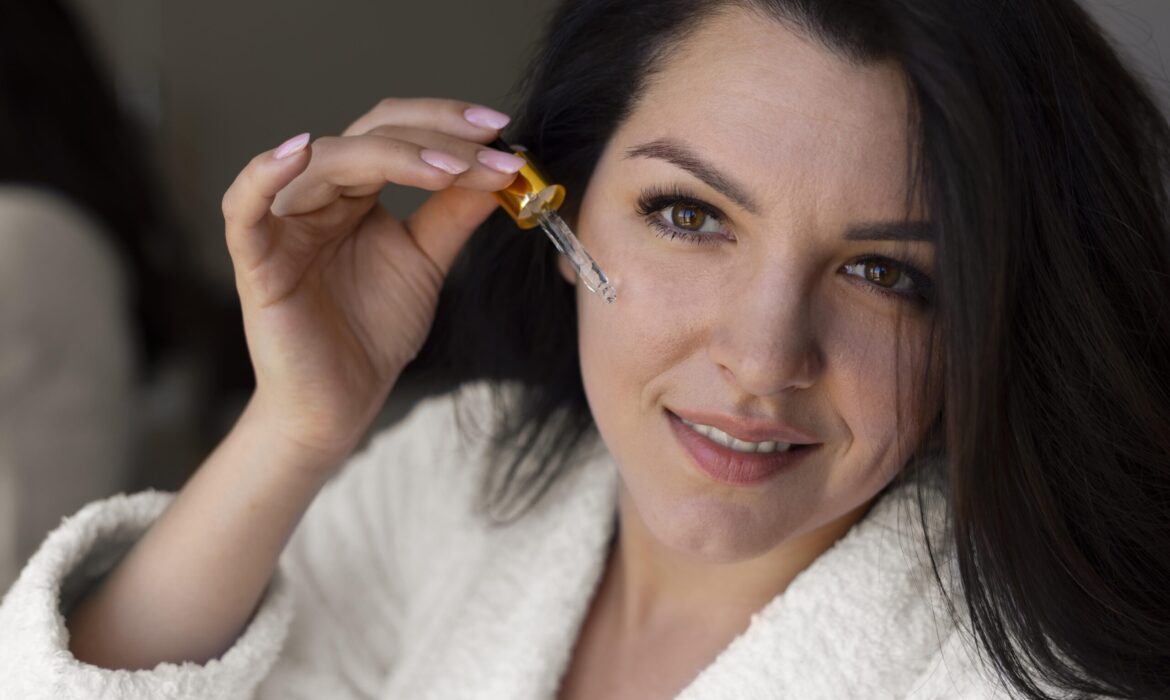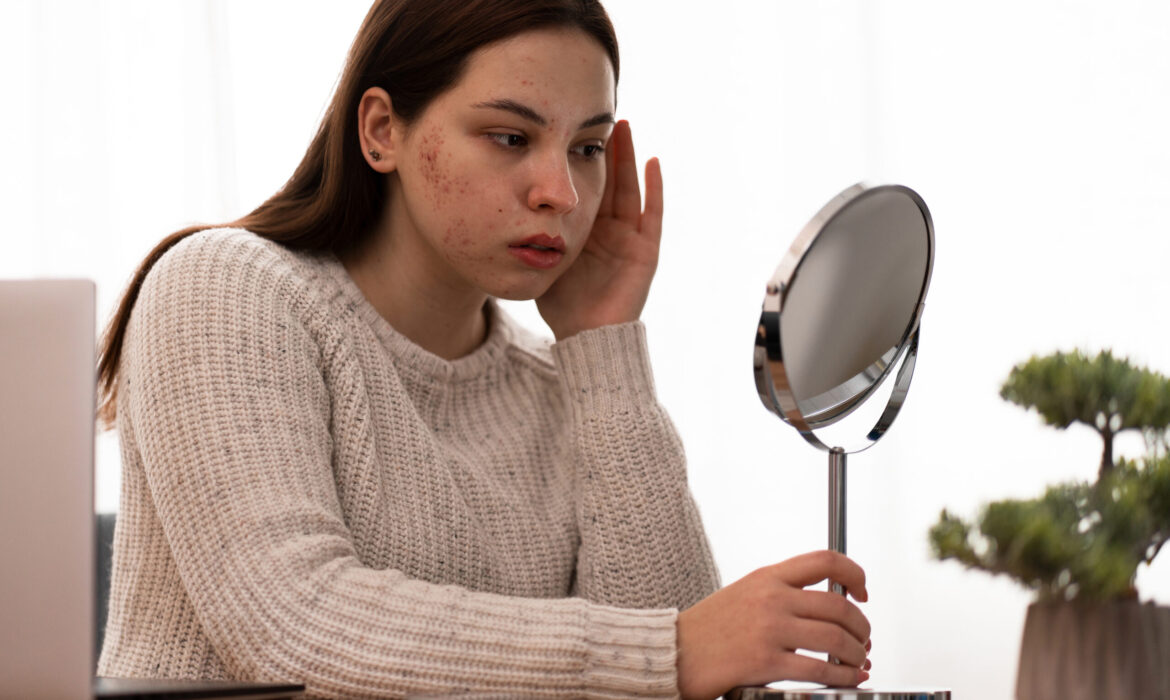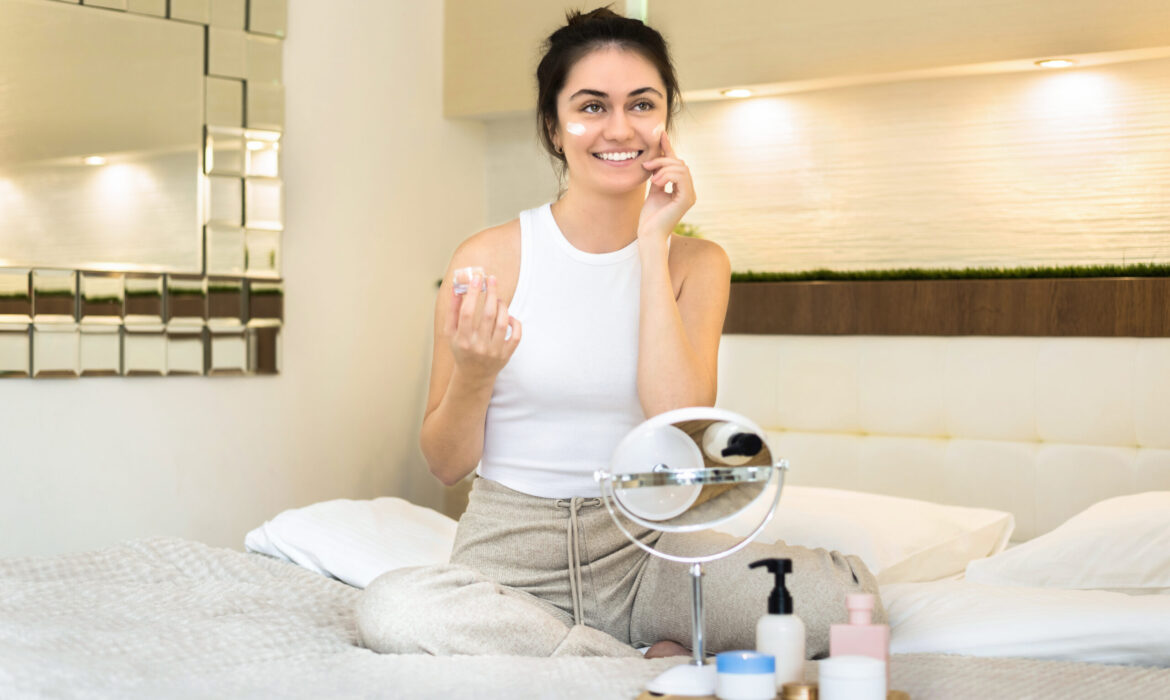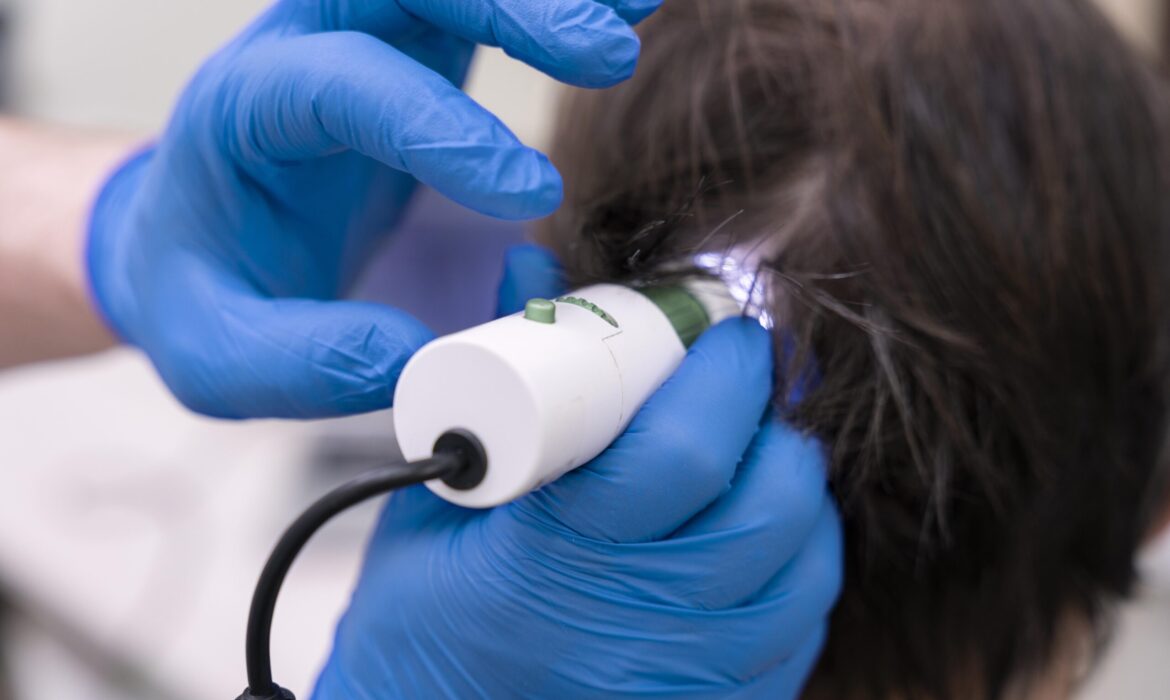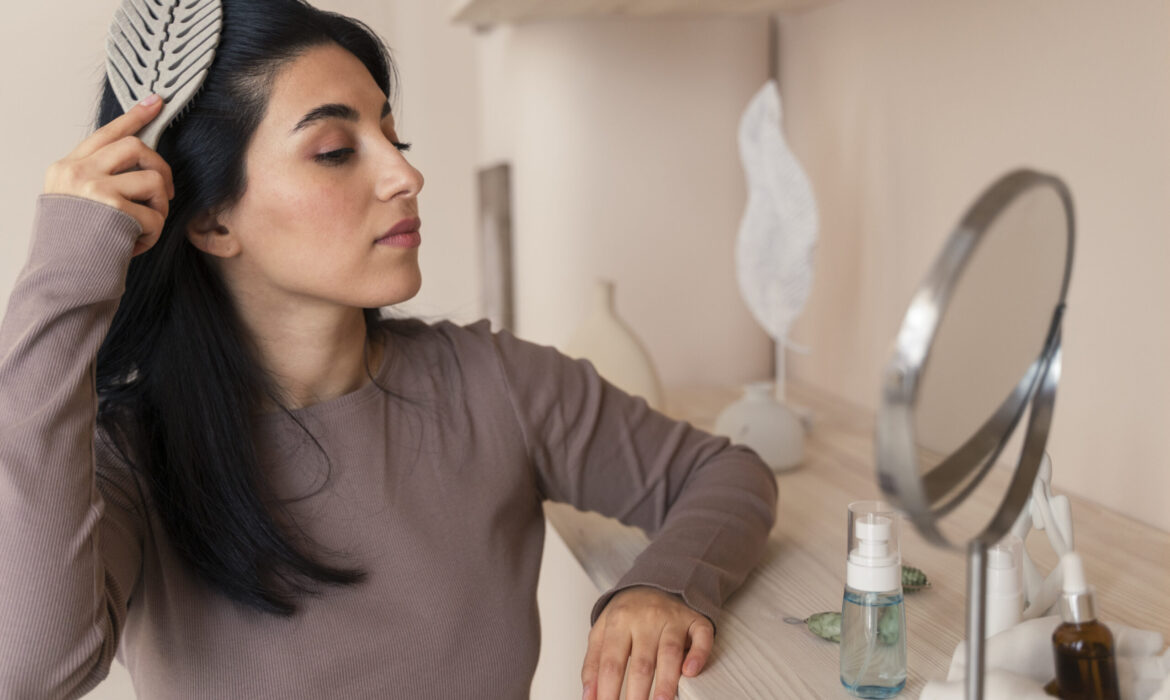How to Find the Best Face Wash for Glowing Skin
How to Find the Best Face Wash for Glowing Skin
Find the best face wash for glowing skin based on your type. Chennai dermatologists at Dr. Hanan Clinic share expert tips and ingredients for radiant, healthy skin.
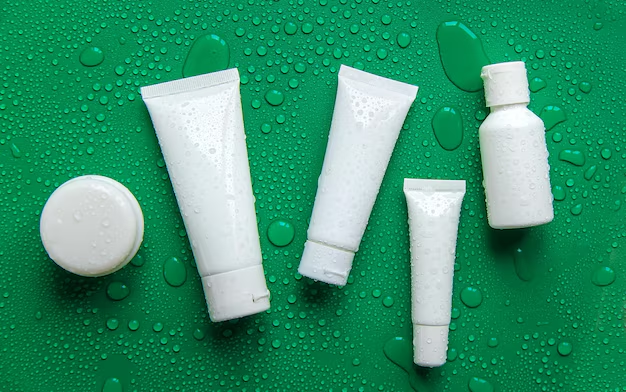
Table of Contents
Finding the best face wash for glowing skin isn’t just about picking the most popular product on the shelf. With so many cleansers – foaming, gel, cream, and exfoliating – it’s easy to get lost in the marketing. But your skin’s glow depends not on trends, but on science and skin type.
At Dr. Hanan Dermatology Speciality and Trichology Clinic, Chennai, our dermatologists guide patients daily on how to build an effective cleansing routine for radiant, healthy skin. Whether you have oily, dry, or sensitive skin, using the right dermatologist-recommended face wash can make a remarkable difference.
Why Choosing the Right Face Wash Matters
A face wash is more than a cleansing step — it’s the foundation of your glowing skin routine. Using the wrong type can strip your skin of its natural oils, trigger breakouts, or dull your complexion.
Your skin’s pH balance, hydration, and barrier integrity all depend on how you cleanse it. That’s why dermatologists at Dr. Hanan Clinic Chennai recommend using cleansers with gentle surfactants, hydrating ingredients, and antioxidants suited for your skin type.
A dermatologist-recommended face wash doesn’t just remove dirt and makeup — it supports your skin’s microbiome, regulates oil, and prepares your skin to absorb nutrients from serums and moisturizers.
1. Identify Your Skin Type Before Choosing a Face Wash
The first step in finding the best face wash for glowing skin is identifying your skin type. Here’s what dermatologists recommend:
Oily or Acne-Prone Skin
If you have oily skin, your face tends to feel greasy and shiny within hours of cleansing. The key is to balance oil production without over-drying. Choose a gel-based face wash for oily skin with:
- Salicylic Acid – unclogs pores and reduces acne.
- Niacinamide – regulates oil and brightens dull skin.
- Tea Tree Extract – antibacterial and calming.
These cleansers are lightweight, refreshing, and keep your pores clear in Chennai’s humid weather.
Dry Skin
For dry, flaky skin, avoid harsh foaming cleansers. Instead, go for cream-based or hydrating face washes enriched with:
- Hyaluronic Acid – locks in moisture.
- Ceramides – repair the skin barrier.
- Aloe Vera or Vitamin E – soothe and nourish.
A gentle cleanser ensures your skin feels supple and smooth instead of tight after washing.
Combination Skin
If your T-zone is oily and cheeks are dry, you have combination skin. The best option is a pH-balanced, non-stripping face wash with mild surfactants and hydrating ingredients.
Sensitive Skin
Choose a fragrance-free, sulfate-free cleanser with ingredients like Centella Asiatica or Panthenol. Avoid scrubbing or exfoliating cleansers that can irritate your skin barrier.
Dermatologist Tip: Avoid using bar soaps or alcohol-based cleansers — they can disrupt your skin’s microbiome and lead to dryness or breakouts.
Ingredients That Help You Achieve Glowing Skin
To achieve luminous, healthy skin, focus on face washes that brighten and hydrate, rather than those that promise “instant glow” with harsh chemicals.
Here are dermatologist-approved ingredients that actually work:
- Vitamin C – Brightens skin tone and reduces dullness.
- Lactic Acid & Glycolic Acid – Gently exfoliate dead skin cells for renewed glow.
- Niacinamide – Balances oil and improves texture.
- Green Tea Extract – Protects against pollution and inflammation.
- Licorice Root Extract – Reduces pigmentation and evens tone.
Pro Tip from Dr. Hanan Clinic: Avoid alcohol, parabens, and artificial fragrances that can cause irritation – especially in Chennai’s hot and humid weather.
Morning vs. Night Cleansing Routine
A proper cleansing routine plays a vital role in achieving glowing skin.
Morning Routine:
Start your day with a mild brightening cleanser to remove overnight oil and prepare your skin for sunscreen and makeup. If your skin is oily, use a gel-based cleanser with niacinamide or tea tree extract.
Night Routine:
Cleansing at night is non-negotiable — it removes dirt, oil, sweat, and pollutants accumulated throughout the day. Dermatologists recommend double cleansing:
- Use an oil-based cleanser to dissolve makeup or sunscreen.
- Follow up with a gentle foaming cleanser to deep clean pores.
- Check our detailed guide on Oily Skincare in Chennai to understand night care better.
Common Face Wash Mistakes to Avoid
Even the best cleanser can fail if used incorrectly. Here are red flags our dermatologists often see:
- Over-cleansing: Washing more than twice a day strips natural oils.
- Using hot water: It damages the skin barrier and causes redness.
- Skipping moisturizer: Cleansing without rehydrating can make skin feel tight.
- Using facial scrubs daily: Over-exfoliation leads to irritation and breakouts.
Green Flag: Use lukewarm water and follow every cleanse with a hydrating serum or moisturizer to lock in moisture.
Read our full post on 10 Skincare Mistakes You Don’t Know You’re Making.
Dermatologist-Approved Face Wash Routine for Glowing Skin
- Wet your face with lukewarm water.
- Massage the cleanser gently in circular motions for 30–40 seconds.
- Rinse thoroughly and pat dry with a soft towel — never rub harshly.
- Follow with a toner, Vitamin C serum, and a moisturizer.
- Finish with sunscreen in the morning or hydrating cream at night.
At Dr. Hanan Clinic, we often combine at-home skincare with advanced Hydrafacial or Medi-Fusion Glow Therapy treatments for long-lasting glow and hydration.
Face Wash Recommendations by Skin Type (From Chennai Dermatologists)
Skin Type | Recommended Type | Key Ingredients |
Oily / Acne-Prone | Gel-based foaming cleanser | Salicylic acid, tea tree, niacinamide |
Dry | Cream-based or hydrating | Hyaluronic acid, ceramides, aloe vera |
Combination | Gentle pH-balanced | Green tea, Vitamin E |
Sensitive | Fragrance-free & mild | Centella Asiatica, panthenol |
Dermatologist Note: At Dr. Hanan Dermatology Clinic, we perform a detailed skin analysis before suggesting any cleanser — because what works for one person may not work for another.
Expert Advice from Dr. Hanan Clinic, Chennai
At Dr. Hanan Dermatology Speciality and Trichology Clinic, we go beyond over-the-counter recommendations. Our dermatologists customize skincare plans for:
- Acne-prone and sensitive skin
- Dullness and pigmentation
- Post-treatment skin recovery
We offer medical-grade facial cleansers and in-clinic skin rejuvenation therapies like:
- Hydrafacial for instant glow
- Chemical peels for exfoliation
- Laser skin rejuvenation for deeper brightness
Each plan is designed based on your skin condition, weather, and daily exposure in Chennai.
Final Thoughts
The best face wash for glowing skin isn’t about expensive products — it’s about balance, consistency, and professional advice. A dermatologist-approved face wash gently removes impurities while maintaining hydration and radiance.
If you’re unsure which cleanser suits your skin, consult our dermatologists at Dr. Hanan Clinic Chennai for a personalized skincare plan that ensures your glow is here to stay.
Book Your Consultation Today!
Benefits of Vitamin C: How to Use, When to Use, Pros and Cons
Benefits of Vitamin C: How to Use, When to Use, Pros and Cons
Learn dermatologist-approved benefits of Vitamin C for glowing, even-toned skin. Discover how to use it safely, when to apply, and what to avoid.
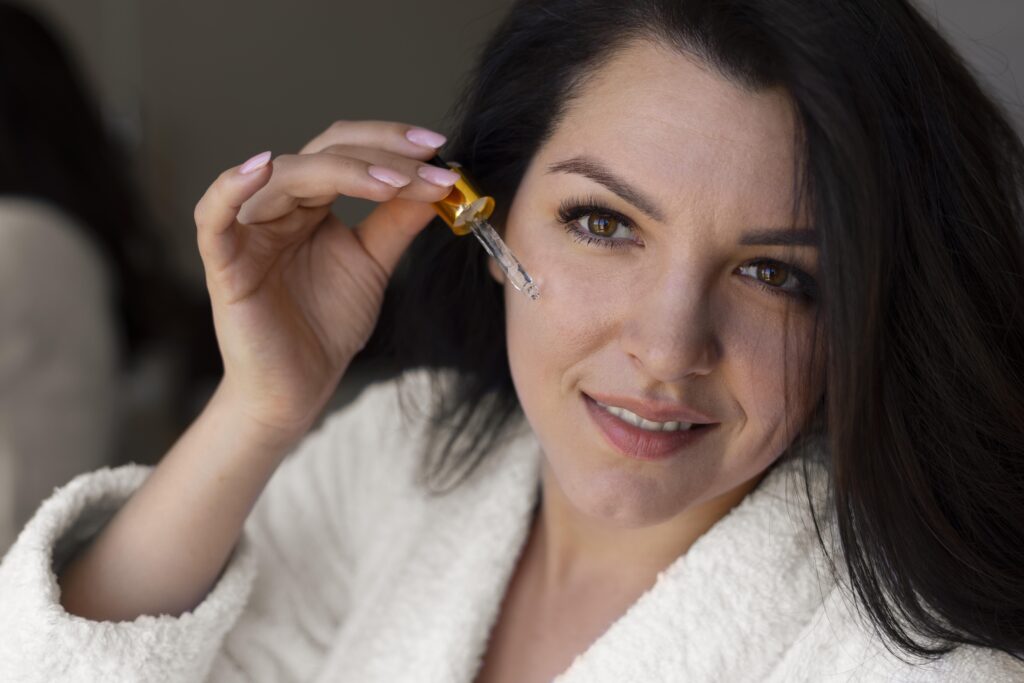
Table of Contents
Vitamin C is one of the most talked-about skincare ingredients — and for good reason. From brightening dull skin to fading pigmentation, the benefits of Vitamin C extend far beyond basic skincare. Dermatologists at Dr. Hanan Clinic, Chennai often recommend Vitamin C as a daily essential for those seeking radiant, youthful skin.
In this guide, you’ll learn how Vitamin C works, how to use it safely, and when it’s most effective — along with its pros and cons from a dermatologist’s perspective.
What Is Vitamin C and Why It Matters for Skin
Vitamin C (ascorbic acid) is a powerful antioxidant that helps protect the skin from free radicals caused by sun exposure, pollution, and stress. It supports collagen production, reduces pigmentation, and helps your skin maintain a healthy glow.
At Dr. Hanan Dermatology Speciality Clinic, we emphasize that using Vitamin C topically provides faster and more targeted results than oral supplements for most skin concerns.
Semantic Keywords: Vitamin C serum for skin, antioxidant skincare, collagen-boosting vitamin, dermatologists in Chennai, best Vitamin C treatments
Benefits of Vitamin C for Skin
Brightens Dull Complexion
Vitamin C inhibits melanin production, reducing dark spots and evening out skin tone. Regular use gives the skin a visible radiance within weeks.
Boosts Collagen and Elasticity
Collagen keeps your skin firm and youthful. Vitamin C helps stimulate collagen synthesis, reducing fine lines and sagging.
Reduces Hyperpigmentation and Melasma
For patients struggling with melasma or post-inflammatory pigmentation, Vitamin C is a dermatologist-approved brightening ingredient.
Learn more about pigmentation management in our blog Top Skin Brightening Treatments in Chennai.
Protects Against Sun and Pollution Damage
Vitamin C neutralizes free radicals generated by UV rays and pollution, preventing premature aging and oxidative stress.
Speeds Up Healing
It assists in repairing damaged skin and reducing redness or irritation after dermatological procedures such as chemical peels or laser therapy.
How to Use Vitamin C in Your Skincare Routine
Cleanse First
Start with a gentle cleanser suitable for your skin type to remove oil, makeup, and impurities.
If you have oily or acne-prone skin, check our guide on Oily Skincare in Chennai.
Apply Vitamin C Serum at Night
Nighttime is the ideal period for Vitamin C application because your skin naturally repairs and regenerates while you sleep. Applying Vitamin C before bed enhances collagen production and brightens dull skin overnight. Use 2–3 drops on clean, dry skin before moisturizer.
Lock in Moisture
Follow with a hydrating, non-comedogenic moisturizer to seal in the serum and prevent transepidermal water loss during the night.
Morning Routine Tip
The next morning, always apply sunscreen (SPF 30 or higher) to protect your skin from UV rays and maintain the brightening benefits achieved overnight.
Dermatologist Insight from Dr. Hanan Clinic:
Using Vitamin C at night reduces oxidation from sunlight and pollution, giving more consistent results for dullness, pigmentation, and fine lines.
When to Use Vitamin C
- Morning: Best for daily antioxidant protection.
- Evening: Helps recovery after exfoliation or dermatological treatments.
- Post-Treatment: Vitamin C can be added after procedures like microneedling or laser resurfacing (once approved by your dermatologist).
Remember: Over-layering Vitamin C with acids or retinol can cause irritation. Space them out between morning and night routines.
Pros and Cons of Vitamin C
Pros | Cons |
Brightens skin tone and fades pigmentation | Can irritate sensitive skin if overused |
Boosts collagen production | Oxidizes quickly if exposed to air or light |
Reduces sun and pollution damage | May cause stinging when combined with exfoliants |
Enhances sun protection when used with SPF | Requires consistent use for visible results |
At Dr. Hanan Clinic, our dermatologists balance Vitamin C usage with your specific skin type — ensuring the benefits outweigh any potential side effects.
Expert Dermatologist Insight from Dr. Hanan Clinic, Chennai
Our dermatologists combine Vitamin C-based skincare with in-clinic treatments like:
- Medi-Fusion Glow Therapy – for instant brightness and hydration.
- Hydrafacial with Antioxidant Serum – boosts Vitamin C absorption.
- Microneedling with Exosomes – enhances collagen formation and glow.
Each plan is customized after a detailed skin analysis to ensure visible, lasting results.
Visit Dr. Hanan Dermatology Speciality and Trichology Clinic in Padur, OMR, Chennai for personalized Vitamin C treatments and dermatologist-guided skincare plans.
Final Thoughts
The benefits of Vitamin C go far beyond glow — it’s one of the few clinically proven ingredients that fights aging, pigmentation, and dullness simultaneously. However, knowing how and when to use it is key.
Book Your Consultation Today!
How Stress Affects Your Skin
How Stress Affects Your Skin
Learn how stress affects your skin, causing acne, dullness, and aging. Get dermatologist-approved solutions
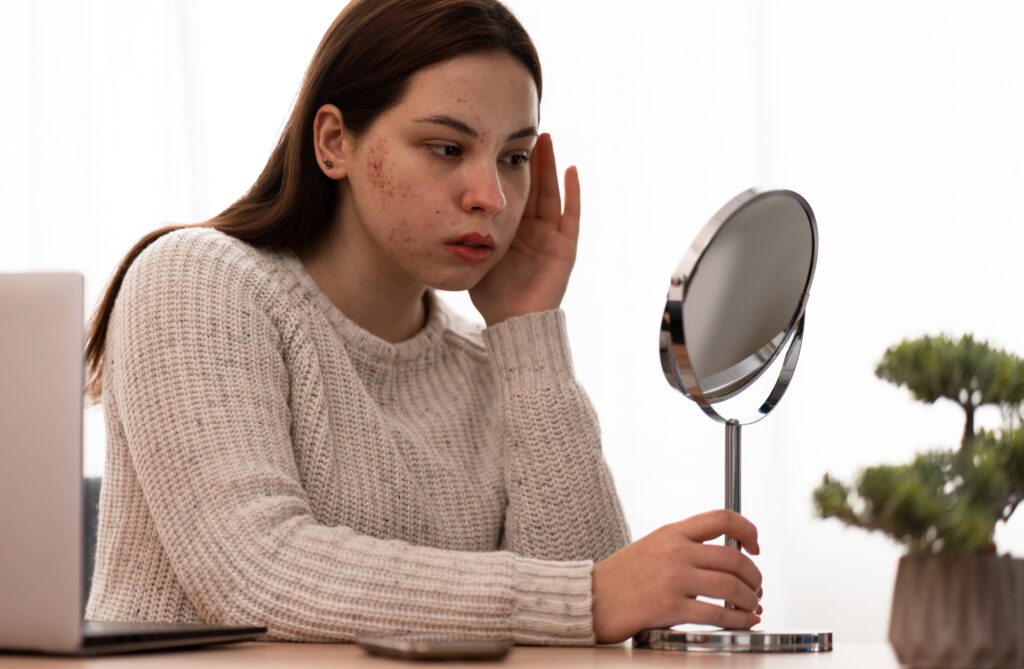
Table of Contents
Have you ever noticed that your skin breaks out or looks dull right when life feels most chaotic? You’re not imagining it. Stress doesn’t just live in your mind — it shows up on your skin too.
At Dr. Hanan Dermatology Speciality and Trichology Clinic in Chennai, our dermatologists often meet patients who are worried about acne, hair fall, or dull skin — and when we dig deeper, stress is usually part of the story. Understanding how stress affects your skin is the first step toward healing it from the inside out.
What Happens to Your Skin When You’re Stressed?
When you feel stressed, your body releases a hormone called cortisol — often called the “stress hormone.” Cortisol helps you deal with short-term pressure, but when it stays high for too long, it affects your skin’s natural balance.
Here’s what happens:
- Your oil glands go into overdrive, producing more sebum (oil).
- The skin barrier weakens, losing moisture and protection.
- Inflammation increases, leading to breakouts, sensitivity, or redness.
“Many people assume their skin suddenly changed, but it’s actually their stress levels disrupting the normal rhythm of their skin,” says Dr. Hanan, leading dermatologist at Dr. Hanan Clinic.
Common Skin Problems Triggered by Stress
1. Acne and Breakouts
Cortisol fuels oil production, which clogs pores and causes inflammation — a perfect recipe for acne. Stress acne usually appears around the forehead, jawline, and cheeks.
💡 Expert tip: Use gentle cleansers with salicylic acid and non-comedogenic moisturizers. Avoid over-washing — it worsens oil imbalance.
2. Dull and Dehydrated Skin
When stressed, blood flow shifts away from the skin to vital organs. Your skin ends up looking pale, dry, or lifeless.
💡 Dermatologist tip: Add Hydrafacial or Medi-Fusion Glow Therapy to your routine. They boost hydration and instantly revive tired skin.
👉 Learn more about Hydrafacial Treatment in Chennai.
3. Premature Aging
Chronic stress accelerates collagen breakdown, leading to wrinkles, sagging, and fine lines earlier than expected.
💡 Treatment option: Rejuvenation therapies like Laser Skin Resurfacing and Chemical Peels at our clinic help renew and tighten skin for a youthful glow.
4. Flare-Ups of Skin Conditions
Stress can trigger or worsen conditions such as:
- Eczema – causes dryness, redness, and itching.
- Psoriasis – leads to thick, scaly patches.
- Rosacea – increases redness and sensitivity.
💡 Dr. Hanan’s advice: “Managing stress is just as important as treating the skin itself. We often combine medical treatment with relaxation practices for lasting relief.”
5. Hair and Scalp Concerns
Stress can also affect your scalp health, leading to hair thinning, excessive shedding, or slow growth.
Our clinic offers proven treatments such as:
These therapies restore scalp circulation and stimulate natural hair growth.
How to Protect Your Skin During Stress
1. Build a Calm Skincare Routine
Stick to simple, dermatologist-approved skincare: a gentle cleanser, a hydrating serum, and sunscreen. Avoid experimenting with too many new products during stressful times.
2. Sleep Your Way to Better Skin
When you don’t get enough rest, your skin doesn’t have time to repair. Aim for 7–8 hours of sleep to allow your skin to rejuvenate overnight.
3. Eat Skin-Friendly Foods
Stress eating often leads to inflammation. Choose foods rich in omega-3s, antioxidants, and vitamin C — these protect your skin barrier and reduce breakouts.
4. Move and Meditate
Exercise and yoga release endorphins that lower cortisol and improve blood flow to your skin. Even 20 minutes a day can make a visible difference.
5. Seek Expert Help
If stress is causing persistent skin or scalp problems, it’s time to consult a dermatologist. At Dr. Hanan Clinic, we treat the root cause — not just the surface symptoms.
Expert-Recommended Treatments at Dr. Hanan Clinic
Our team combines dermatology expertise with the latest technology to repair stress-damaged skin and hair:
- Hydrafacial / Medi-Fusion Therapy – Deep hydration and detox for dull skin.
- PRP Therapy – Promotes collagen and hair follicle regeneration.
- Chemical Peels – Removes dead cells and reduces stress-induced pigmentation.
- LED Light Therapy – Calms inflammation and revives tired skin.
- Laser Treatments – Smoothens wrinkles and restores youthful radiance.
Each treatment plan is personalized after a detailed skin and scalp analysis.
When to Visit a Dermatologist
You should consult a skin specialist if you experience:
- Sudden acne breakouts after stress or lack of sleep
- Skin irritation or eczema flare-ups
- Excessive hair shedding or thinning
- Dull, dehydrated skin despite skincare
Our dermatologists at Dr. Hanan Dermatology Speciality and Trichology Clinic, Chennai use diagnostic tools like dermoscopy and trichoscopy to identify early signs of stress-related damage and recommend the most effective treatments.
Final Thoughts
Stress is an invisible enemy for your skin. It silently weakens your barrier, slows cell renewal, and triggers breakouts. But the good news? With the right care and expert guidance, your skin can bounce back stronger than ever.
At Dr. Hanan Clinic, Chennai, our approach combines science, technology, and care — helping your skin heal both inside and out. Whether you’re dealing with acne, pigmentation, or dullness, we’ll create a plan tailored to your needs.
Book Your Consultation Today!
Celebrities Skin Care Routine For Glowing Skin
Celebrities Skin Care Routine For Glowing Skin
Get glowing skin with dermatologist-approved celebrities skin care routine and treatments at Dr. Hanan Clinic, Chennai.
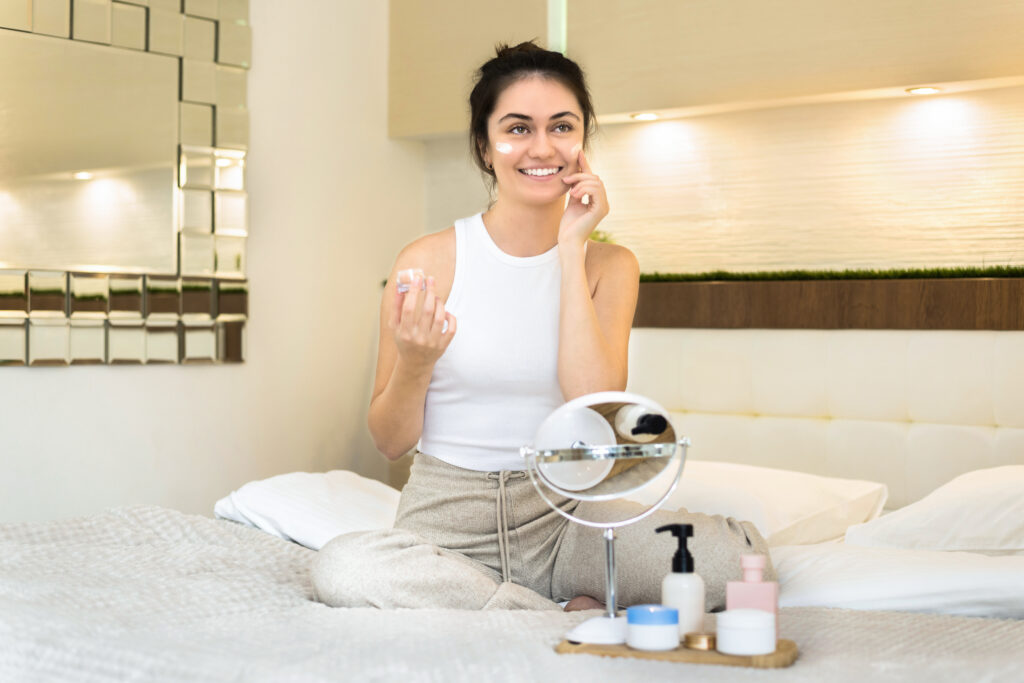
Table of Contents
When we look at celebrities walking the red carpet or posting makeup-free selfies, one thing is common—their skin looks flawless, radiant, and youthful. Many people wonder if it’s only genetics or expensive products that give them that glow. The truth? A celebrities skin care routine is usually a combination of dermatologist-approved habits, professional treatments, and consistency.
At Dr. Hanan Dermatology Speciality and Trichology Clinic, Chennai, we see many patients asking for “celebrity-like glowing skin.” The good news is that with the right skincare practices and medical treatments, you too can achieve healthy, radiant skin without following unrealistic fads.
What Makes Celebrities’ Skin Different?
Contrary to popular belief, most celebrities don’t rely solely on luxury creams. Instead, they:
- Follow strict daily skincare routines customized by dermatologists.
- Invest in professional treatments like Hydrafacial, chemical peels, or laser therapies.
- Focus on diet, hydration, and lifestyle changes to support skin health.
Celebrities’ skin looks perfect because they treat skin as an investment—not just an afterthought.
Step-by-Step Celebrities Skin Care Routine
Here’s what most dermatologist-approved celebrity routines look like:
Cleansing with Gentle Formulas
Cleansing is the foundation of every skincare routine. Celebrities use gentle, sulfate-free cleansers that remove dirt, oil, and makeup without stripping natural oils. For those in Chennai’s humid climate, gel-based cleansers are ideal.
Tip from dermatologists: Choose a cleanser based on your skin type—oily, dry, or sensitive. Read more about choosing products in our blog on How to Choose the Right Shampoo for Your Hair Type.
Hydration is Key
Glowing skin is well-hydrated skin. Most celebrity skincare routines include hyaluronic acid serums and lightweight moisturizers that lock in moisture without clogging pores.
At Dr. Hanan Clinic, we often recommend medical facials like Hydrafacial for patients seeking instant hydration and brightness.
Sunscreen – The Celebrity Secret Weapon
Ask any celebrity dermatologist, and they’ll confirm: sunscreen is non-negotiable. Whether it’s filming under bright lights or walking outdoors, celebrities always protect their skin from harmful UV rays.
For Chennai’s weather, we suggest gel-based or matte sunscreens with SPF 50+. Skipping sunscreen is a red flag habit we warn against in our blog on Dermatologist-Approved Haircare Habits.
Exfoliation and Brightening Treatments
To maintain smooth texture and even tone, celebrities opt for:
- Chemical peels for pigmentation and dullness.
- Laser treatments for scars and fine lines.
- Microneedling with PRP or exosomes for rejuvenation.
At Dr. Hanan Clinic, our Laser Skin Resurfacing and microneedling therapies are popular with patients who want “red carpet-ready skin
Night Care Routine
Celebrities swear by nighttime skincare. They use retinol, peptides, or nourishing creams to repair the skin barrier overnight. Retinol in particular is widely praised for its anti-aging benefits, but it should always be used under dermatologist guidance.
We offer customized anti-aging treatments in Chennai for patients who want to fight wrinkles and maintain youthful skin like celebrities.
Professional Treatments Celebrities Swear By
Beyond home care, celebrities invest in dermatology treatments to maintain skin health. Some of the most popular include:
- Hydrafacial in Chennai – Deep cleansing, exfoliation, and hydration.
- Glutathione Therapy – Brightens skin and reduces pigmentation.
- Chemical Peels – Treats tanning, dullness, and acne marks.
- Laser Resurfacing – Removes scars, pigmentation, and fine lines.
These treatments are safe, evidence-based, and dermatologist-supervised, unlike the DIY facials or viral skincare hacks you see online.
Why Choose Dr. Hanan Clinic for Celebrity-Like Skincare?
At Dr. Hanan Dermatology Speciality and Trichology Clinic, Chennai, we specialize in:
- Evidence-based skincare treatments designed for Indian skin.
- FDA-approved technologies for safe results.
- Customized celebrity-inspired regimens for each patient.
- Backed by 1000+ real Google reviews from satisfied clients.
Whether you want a glow-up before your wedding or a long-term anti-aging plan, we provide the same dermatologist-level care that celebrities rely on.
Final Thoughts
The truth is, celebrities skin care routine is not a mystery. With dermatologist guidance, consistency, and the right treatments, anyone can achieve radiant, healthy skin. At Dr. Hanan Clinic, we bring celebrity-level skin expertise to Chennai—making flawless skin more accessible than ever.
Book Your Consultation Today!
Does LED Light Therapy Really Work for Hair Growth?
Does LED Light Therapy Really Work for Hair Growth?
Understand how LED Light Therapy helps boost hair growth by energizing follicles and reducing scalp inflammation
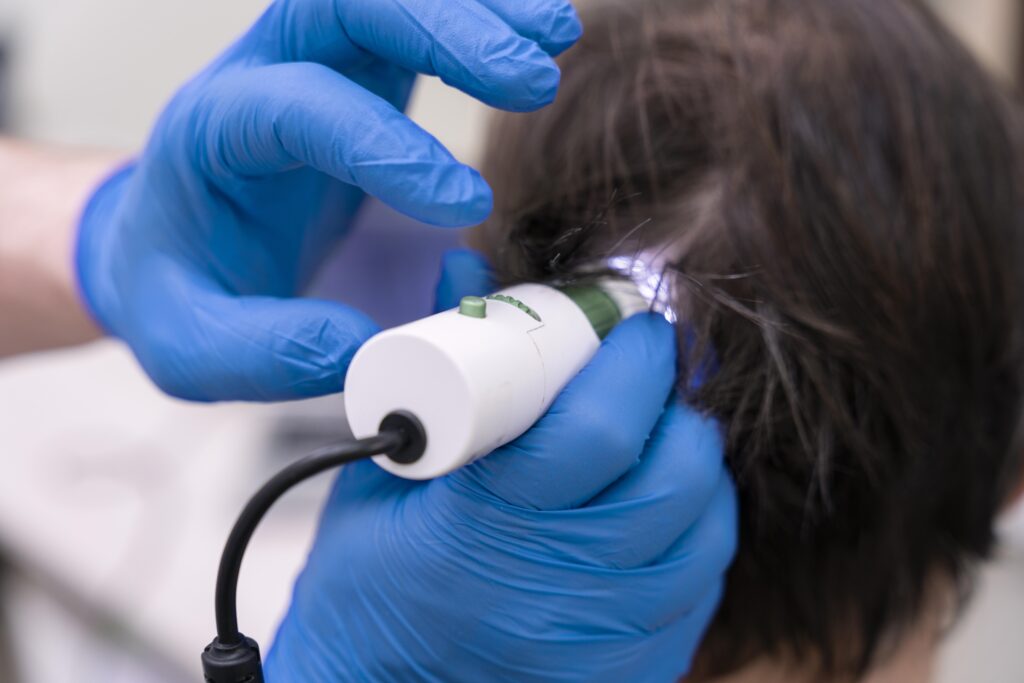
Table of Contents
Hair loss is one of the most common concerns for both men and women today. From stress and hormonal imbalances to genetics and poor scalp health, many factors can contribute to thinning hair. While treatments like PRP therapy and hair transplantation are well-known, there’s another innovative, non-invasive solution that’s gaining popularity — LED Light Therapy.
What Is LED Light Therapy?
LED Light Therapy (also called Low-Level Laser Therapy or LLLT) uses specific wavelengths of light — particularly red and near-infrared light — to stimulate hair follicles and promote hair growth.
Unlike surgical procedures, LED therapy is completely non-invasive, painless, and has no downtime. It works at a cellular level, improving blood circulation in the scalp and enhancing the activity of hair follicle cells.
The light energy penetrates the scalp tissue and stimulates mitochondria (the cell’s powerhouse), improving energy production and nutrient absorption. This helps weakened hair follicles become active again, resulting in stronger, thicker hair strands.
How Does LED Light Therapy Work for Hair Growth?
LED therapy works through a process called photobiomodulation — where light energy interacts with the scalp’s cells to trigger biological reactions. Here’s what happens:
- Increases Blood Flow: Red light boosts microcirculation in the scalp, delivering more oxygen and nutrients to hair follicles.
- Reduces Inflammation: It calms the scalp and prevents inflammation that can damage follicles.
- Activates Follicle Growth: The therapy extends the anagen (growth) phase of the hair cycle.
- Strengthens Hair Roots: Improved energy supply helps weak follicles grow thicker, stronger strands.
At Dr. Hanan Clinic, our dermatologists use FDA-approved LED devices that emit the right wavelength (usually between 630–670 nm) for optimal results.
Benefits of LED Light Therapy
LED Light Therapy offers numerous benefits for those dealing with early or moderate hair loss:
- ✅ Non-surgical & pain-free treatment
- ✅ Stimulates natural hair regrowth
- ✅ Improves scalp circulation
- ✅ Reduces hair thinning and breakage
- ✅ Enhances the results of PRP or hair transplant treatments
- ✅ Safe for both men and women
Many patients at our Chennai clinic combine LED Light Therapy with PRP (Platelet-Rich Plasma) or mesotherapy for faster, long-lasting results.
Who Is the Right Candidate for LED Light Therapy?
LED Light Therapy is ideal for:
- People experiencing early-stage hair loss or hair thinning
- Those with post-hair transplant recovery needs
- Patients who prefer non-surgical treatment options
- Individuals dealing with stress-related hair shedding
However, for patients with complete baldness, LED therapy may not be sufficient. In such cases, our dermatologists recommend Hair Transplant Treatment in Chennai for permanent results.
What to Expect During the Treatment
The procedure is simple, relaxing, and takes only 20–30 minutes per session:
- You’ll be seated comfortably under an LED light dome.
- The device emits red and infrared light that penetrates the scalp.
- You may feel mild warmth, but there’s no discomfort or pain.
- No downtime — you can resume your daily activities immediately.
A full treatment plan typically involves 8–12 sessions spaced over several weeks, with visible improvement in 3–4 months.
Is LED Light Therapy Clinically Proven?
Yes ✅
Multiple studies published in peer-reviewed dermatology journals have shown that Low-Level Laser Therapy (LLLT) effectively promotes hair growth by stimulating cellular energy and increasing blood flow.
Dermatologists worldwide recommend it as part of a comprehensive hair restoration plan, especially when combined with treatments like PRP, microneedling, or minoxidil therapy.
Why Choose Dr. Hanan Clinic for LED Light Therapy in Chennai?
At Dr. Hanan Dermatology Speciality and Trichology Clinic, we combine science, experience, and technology to deliver real results.
- Expert Dermatologists and Trichologists with years of clinical experience
- FDA-approved LED systems designed for safe and effective use
- Customized hair restoration plans based on individual scalp analysis
- 1000+ genuine Google reviews from happy patients across Chennai
We’re known as one of the best hair transplant clinics in Chennai, and our LED Light Therapy is a key part of our non-surgical treatment success.
Final Thoughts
So, does LED Light Therapy really work for hair growth?
Yes — when performed under dermatologist supervision using medical-grade devices, it’s a scientifically backed, effective, and safe treatment for stimulating natural hair regrowth.
At Dr. Hanan Clinic, we help you reclaim your confidence with advanced technologies like LED Light Therapy, PRP, and Hair Transplantation, all tailored to your needs.
Book Your Consultation Today!
Dermatologist Approved Haircare Habits
Dermatologist Approved Haircare Habits
Learn dermatologist approved haircare habits to boost scalp health. Spot green flags vs red flags and protect your hair with expert tips from Dr. Hanan Clinic, Chennai.
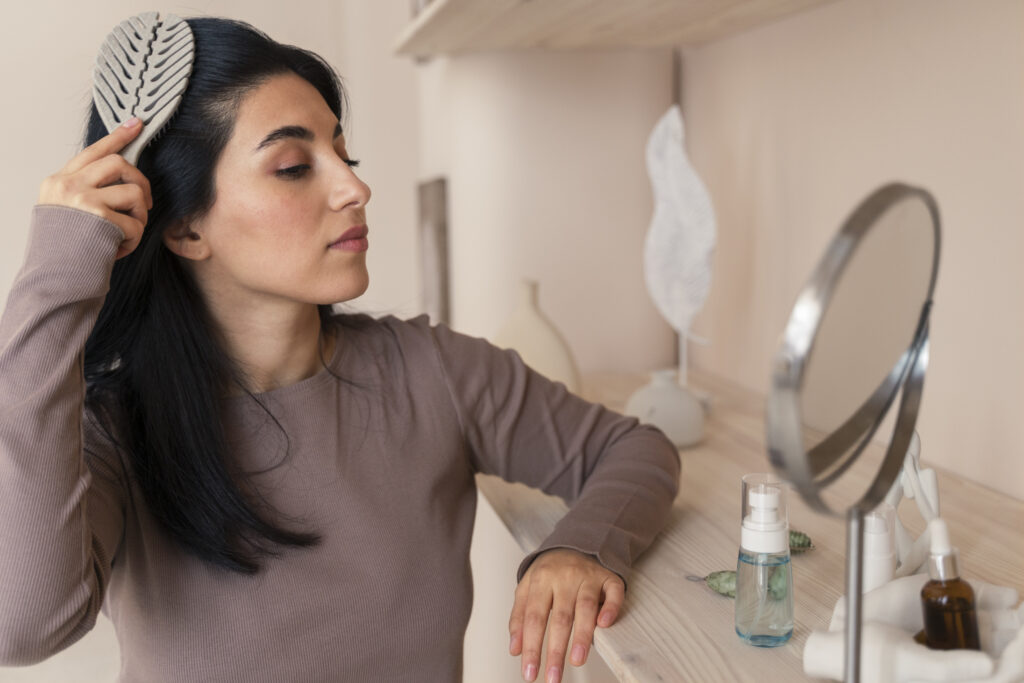
Table of Contents
Healthy, strong hair doesn’t just come from good genetics—it also comes from consistent, scientifically sound haircare habits. But many people follow advice from social media or hearsay, which sometimes includes harmful steps. In this blog, we’ll walk you through dermatologist-approved green flags (good habits you should follow) and red flags (practices to avoid). Use this as your reference to build a haircare routine that supports scalp health and hair growth.
Why Haircare Habits Matter
Your scalp is skin too, and hair follicles depend on a balanced environment—adequate hydration, minimal inflammation, good blood circulation, and proper nutrition. Poor habits (overwashing, harsh chemicals, tight hairstyles) can cause damage, breakage, hair fall, or scalp issues like irritation or dandruff.
As specialists in dermatology and trichology, at Dr. Hanan Dermatology Speciality and Trichology Clinic, we see many patients whose hair loss or scalp problems are worsened by bad habits. The good news: small changes—making more green flag habits—can make a big difference.
Green Flag Haircare Habits (What Dermatologists Approve)
These are safe, beneficial habits that support hair health for most people
Use a gentle, sulfate-free shampoo
Harsh sulfates strip natural oils, making the scalp dry and triggering overcompensation by sebaceous glands. Use mild cleansers or shampoos with gentle surfactants. For example, shampoos containing cocamidopropyl betaine or sodium lauryl sulfoacetate are milder.
Wash frequency suited to scalp type
Not everyone needs daily shampooing. For those with oily scalps, washing more often is okay; for dry or color-treated hair, washing 2–3 times per week may suffice. Let your scalp’s oil balance guide you.
Condition the mid-lengths to ends
Apply conditioner only from the mid-shaft downward—not on the scalp—so that the scalp isn’t weighed down or clogged. Use ingredients like panthenol, hydrolyzed keratin, and natural oils in conditioners.
Pat dry, don’t rub
Vigorous towel rubbing causes mechanical damage. Instead, gently pat or squeeze excess water, or use a microfiber towel or soft cotton T-shirt.
Use wide-tooth combs or detangling brushes
Especially when hair is wet, use a wide-tooth comb or specially designed detangler to minimize breakage.
Protect hair from heat & UV damage
- Use a heat protectant spray before blow-drying, straightening, or curling.
- Keep styling tools at moderate temperature (below ~180 °C).
- During sun exposure, protect hair with hats or use hair sunscreen or UV-protectant sprays.
Learn more about protection in our blog on Hair Fall While Combing: Best Ways to Minimize It
Scalp massage & circulation support
Gently massaging the scalp for a few minutes daily improves blood flow. Some dermatologists recommend low-level laser therapy (LLLT) or microneedling (under clinical supervision) to boost follicle health.
Scalp massages improve circulation. Some clinical solutions like PRP therapy also stimulate hair regrowth (read more about PRP Treatment for Hair Loss in Chennai
Balanced diet and hydration
Hair follicles need nutrients. Ensure adequate protein, iron, zinc, biotin, omega-3 fatty acids, vitamins A, C, D. Drink enough water. Poor nutrition often shows up as weak, dull hair.
Regular trimming
Trimming split ends every few months prevents further splitting that can travel up the hair shaft. This doesn’t grow hair faster, but helps hair look healthier.
Consistent scalp care routine
If you have dandruff, sensitivity, or scalp conditions, use medicated shampoos or treatments as prescribed. Follow dermatologist advice rather than random over-the-counter aggressive treatments.
Red Flag Haircare Habits (What Dermatologists Warn Against)
These are common but harmful practices that many people do—often without realizing the damage they cause.
Daily use of harsh chemical treatments
Bleaches, strong perms, repeated coloring can damage hair structure and scalp barrier. Doing these frequently weakens hair and increases breakage or permanent hair loss.
Over-washing or frequent shampooing with harsh surfactants
This strips natural oils and damages the scalp barrier, causing compensatory oiliness, dryness, or irritation.
Applying conditioner or heavy product directly to the scalp
This can block follicle openings, trap debris, and lead to clogged pores or milia, especially in sensitive scalps.
Tight hairstyles & constant traction
Styles like braids, tight ponytails or buns, weaves, or extensions create strain on hair follicles, causing traction alopecia over time.
Sleeping without hair protection
Sleeping on rough cotton pillowcases or without wrapping/covering your hair can cause friction, leading to breakage.
Heat styling at very high temperatures
Using flat irons or curling wands at extreme heat repeatedly damages keratin bonds and leads to brittle, broken hair.
Ignoring scalp symptoms
Itchiness, flaking, pain, or tender spots might indicate scalp disease—ignoring them or self-medicating can worsen the condition.
Use of generic or aggressive products without guidance
Random use of strong acids, bleaching agents, or unknown serums can lead to chemical burns, pigmentation, or hair loss.
Skipping sun protection for hair
UV radiation damages hair protein, fades color, and weakens structure. Scalp and hair UV protection is needed.
Poor diet, dehydration, over-stress
Chronic stress, nutrient deficiency, dehydration, smoking all negatively influence hair health.
Tips for Building a Dermatologist-Approved Haircare Routine
- Identify your scalp type (oily, dry, normal, combination)
- Choose gentle products with fewer irritants
- Start with the green flag habits above and gradually eliminate red flag ones
- Monitor your hair over 2–3 months and adjust
- If persistent hair fall, thinning or scalp changes occur, consult a dermatologist or trichologist
At Dr. Hanan Dermatology Speciality and Trichology Clinic, we evaluate scalp condition, hair density, and history before recommending a personalized regime.
Why Dr. Hanan Clinic Is Trusted for Haircare
When patients look for the best dermatologist in Chennai or the top hair transplant clinic in Chennai, they often find us. Our reputation comes from:
- Expert dermatologists and trichologists who diagnose and treat scalp/hair issues scientifically
- Ethical, evidence-based treatments that protect scalp health
- Genuine patient reviews (our clients often share how adopting green flag habits after their treatments improved results)
- Seamless integration between dermatology (skin) and trichology (hair) care
Final Thoughts
Building a haircare routine based on dermatologist-approved habits strengthens your hair, protects your scalp, and enhances the results of any medical treatment you may undergo. Always look for green flag habits and be aware of the red flags.
If you’re noticing persistent hair fall, thinning, or scalp issues, your best step is to consult a specialist. At Dr. Hanan Dermatology Speciality and Trichology Clinic, we combine medical expertise with patient education – helping you care for your hair every day.

